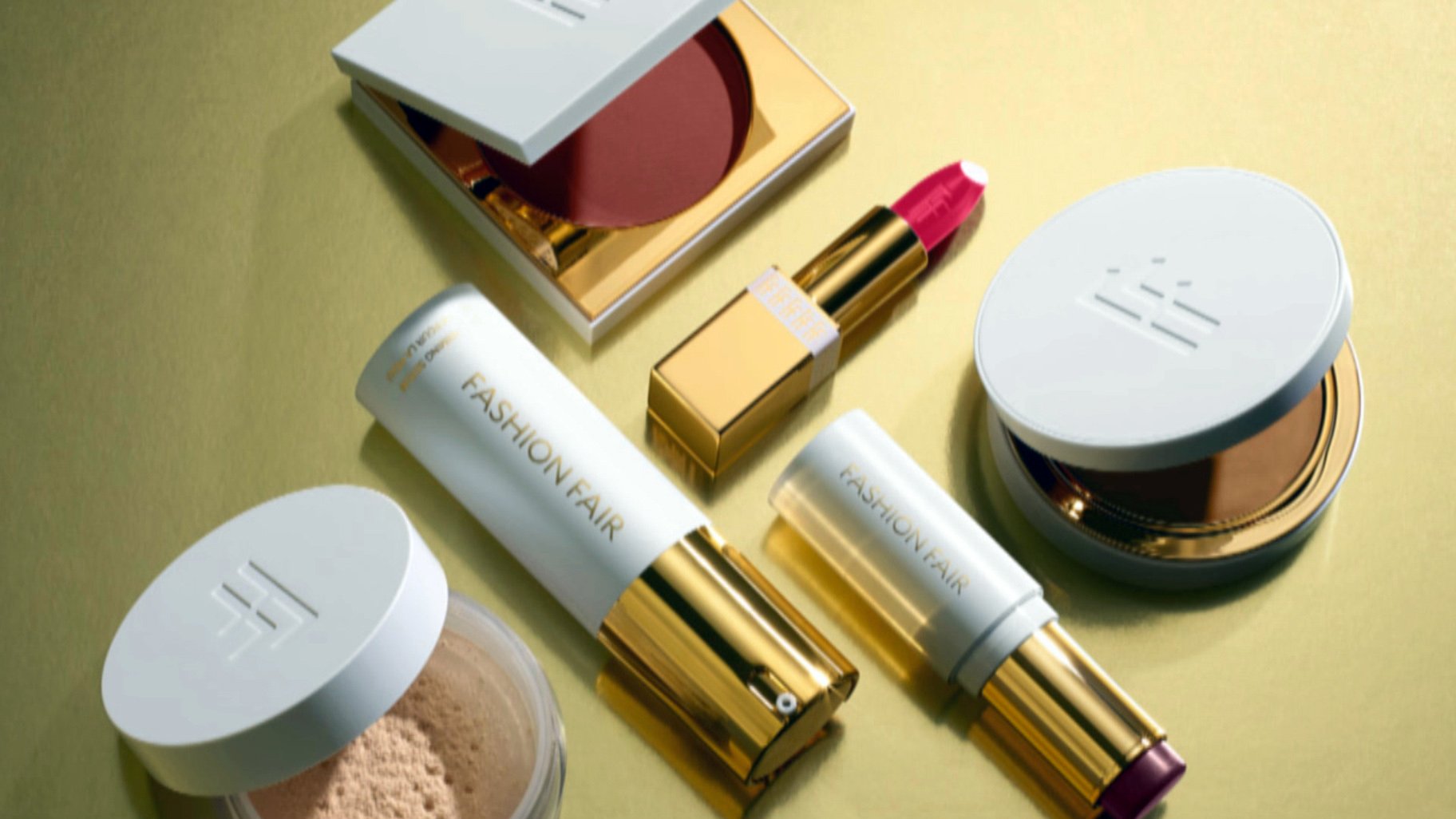Many Black women may be familiar with the cosmetics brand Fashion Fair — founded in 1973 by Eunice Johnson, wife of John Johnson, the Black publishing magnate behind Ebony and Jet magazines.
Though the publishing house is no longer what it used to be, new ownership has given Fashion Fair its own makeover and returned it to store shelves.
“We’re the queen,” said co-owner Desiree Rogers, who bought the company along with fellow former Ebony executive Cheryl Mayberry McKissack. “We started 56 years ago, you know, and we were, if not the first, close to the first. And we’ve always focused on darker skin tones. It wasn’t novel. It wasn’t something that, you know, we thought like, ‘wow, isn’t this hip and cool to do, let’s be politically correct.’ It didn’t exist.”
Founded in 1973, Fashion Fair catered to black women who could afford the department store prices for cosmetics that suited their spectrum of skin tones.
“So for me, it was my first makeup. It was the first makeup my mother allowed me to use and so that is a big deal in any girl’s life because all of us when we’re young, we want to wear something!” Rogers said.
Packaged in iconic pink tubes and compact cases, the brand was seen on hundreds of Ebony Fashion Fair models, as well as fashion show audience members, over the years.
But as Johnson publishing was filing for bankruptcy in 2019, it sold Fashion Fair to former executives Rogers and McKissack.
The business duo, along with another partner, scooped it up with plans of returning it to its former glory.
“So the opportunity to take the historical legacy that Fashion Fair has been known for around the world, certainly all work Mrs. Johnson did bringing Fashion Fair into the marketplace, it’s wonderful,” said Mayberry McKissack. “But yet a little bit scary because, you know, there’s a history and there’s a legacy and you know, we’ve got to make sure that we do it right.”
Chicago-native and celebrity makeup artist Sam Fine returned to help redevelop the product.
Today’s Fashion Fair is vegan and includes natural additives like vitamin C and green tea extract to provide a skin-care benefit.
A range of lipsticks and foundations — in both new and legacy colors — are now presented in white and gold packaging, perched on the shelves of retail beauty giant, Sephora, instead of department store counters.
“Being able to say that you can go to this gondola and find something for your cousin, your sister and your aunt, I think is unique because many of the brands, even in their shade extensions don’t really speak to the nuances of, of coloring that that speak to us so beautifully,” Fine told WTTW News.
But Fashion Fair’s comeback arrives at a time when women of color already have far more choices than in the late 20th century.
Heritage brands have extended their lines to include darker shades, and Rihanna’s all-inclusive Fenty beauty line has sold enough to turn the popstar into a billionaire business mogul.
Research shows that Black women alone spent about $1.3 billion on color cosmetics in 2020 — down from nearly $1.7 billion in 2019, likely because of the pandemic.
Rogers and McKissack say while there’s room for everyone, Fashion Fair is the original — and its new makeover is for those who knew it when, and fresh faces who can get to know it now.
“They’re also gonna see us and I think in a very different way and it really is about us really focusing on women with darker skin tones. That’s our number one focus: we don’t do anything else,” McKissack said.
The pair also co-own Black Opal cosmetics, a mass-market brand designed for Black women, sold in drug stores and Ulta.







More Stories
Gu, Neymar, Asher-Smith among Olympians at Paris Fashion Week 2023
Where Were You for the Big Bang? The Palais Galliera Considers the Pivotal Fashion Year of 1997
Victoria’s Secret fashion show to return with ‘new version’